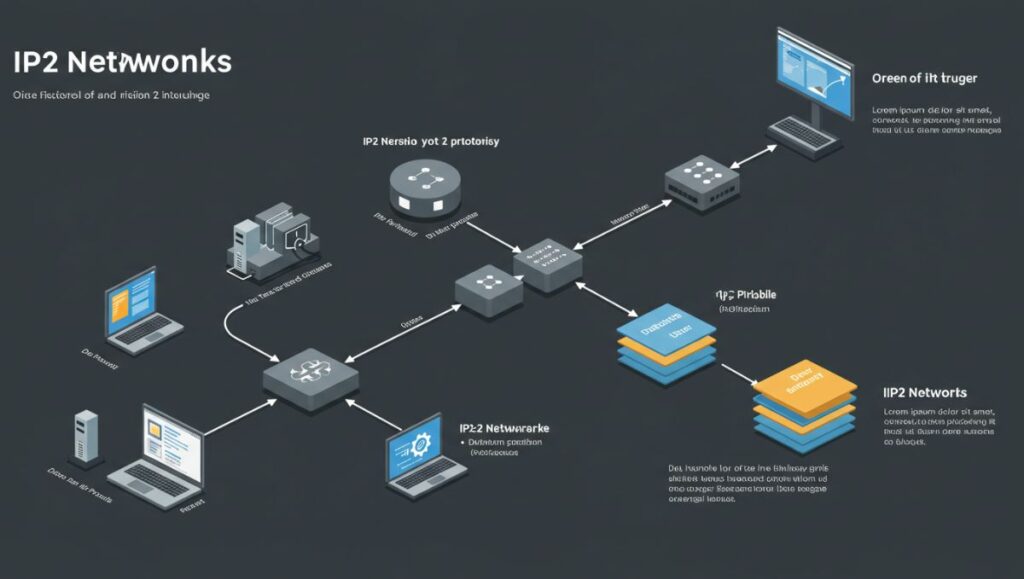In the digital era, networks form the backbone of communication, entertainment, and business. One name that has surfaced in online discussions is the IP2 Network. While not as widely known as traditional internet providers or platforms, IP2 Network has drawn attention for its unique role in connecting people and broadcasting content.
This article explores the concept of IP2 Network—its origins, how it works, its cultural and technical relevance, and the opportunities and controversies surrounding it.
What is the IP2 Network?
The IP2 Network is a decentralized online community and streaming hub that evolved around IRL (In Real Life) livestreaming. It acts as an informal network where streamers, viewers, and content creators interact. Unlike mainstream streaming platforms such as Twitch or YouTube, IP2 Network thrives on community-driven programming, alternative content, and edgy personalities.
At a technical level, the term “IP2” connects to IP addressing (Internet Protocol), which is the core system for routing information online. This dual meaning—the technical foundation of internet networking and the cultural phenomenon of live broadcasts—gives IP2 Network its layered identity.
The Origins of IP2 Network
The IP2 Network traces its roots back to Ice Poseidon, a popular livestreamer whose brand of chaotic, unfiltered content gave rise to a dedicated community. After his main platform presence shifted, fans and fellow creators formed an informal network of streamers who carried on the tradition.
Key elements that shaped its growth include:
-
Decentralization: No single owner; it’s more of a collective.
-
Community Listings: Streamers get promoted through directories and shared links.
-
Alternative Culture: Content often pushes boundaries compared to mainstream media.
How IP2 Network Works
1. Streaming Model
Streamers broadcast their lives, ranging from travel adventures and gaming to controversial real-world interactions.
2. Network Structure
Instead of one platform, IP2 acts as a hub that lists and promotes different streamers across platforms like YouTube, Twitch, or Kick.
3. Viewer Interaction
Fans engage via live chat, donations, and social media, creating a tight-knit ecosystem.
4. Community Organization
The network relies heavily on crowd support, with fans driving popularity rankings and promoting clips across forums.
Advantages of the IP2 Network
1. Freedom of Expression
Streamers can push boundaries and explore formats without strict corporate oversight.
2. Community-Driven Growth
Viewers play an active role in promoting and supporting creators.
3. Diversity of Content
From street interviews to experimental art streams, the network thrives on variety.
4. Accessibility for Streamers
Smaller creators can gain traction more easily without competing against massive corporate algorithms.
Challenges and Controversies
1. Lack of Moderation
With fewer restrictions, IP2 Network sometimes faces issues with inappropriate or controversial content.
2. Reputation Risks
Its association with edgy and sometimes chaotic streams can alienate mainstream audiences.
3. Monetization Limitations
Without official partnerships, revenue models are less stable compared to big platforms.
4. Platform Dependency
Since IP2 Network doesn’t host its own infrastructure, it relies on external platforms like YouTube or Kick, making it vulnerable to bans.
The Cultural Impact of IP2 Network
The IP2 Network reflects a broader cultural shift toward alternative digital communities. It resonates with audiences who feel mainstream platforms are overly sanitized.
Key cultural contributions:
-
Meme Generation: Clips and highlights often become viral memes.
-
Internet Freedom Symbolism: Represents rebellion against corporate gatekeepers.
-
Subcultural Identity: Fans and streamers form a distinct online identity within the wider internet ecosystem.
The Technical Side: IP and Networking Context
The name “IP2” also nods to the underlying Internet Protocol (IP) system.
What is IP?
-
IP (Internet Protocol) manages how data travels across the internet.
-
IPv4 and IPv6 are the most common standards.
-
IP addresses identify devices in a network.
Why IP2 Matters
Although not an official internet standard, the IP2 brand cleverly references connectivity, reinforcing the network’s role in linking people digitally.
Future of IP2 Network
1. Mainstream Recognition
If the community grows, IP2 could gain more recognition as an underground cultural hub.
2. Greater Monetization Tools
Streamers may develop new ways to monetize content directly, bypassing traditional platforms.
3. Potential Regulation
Authorities or platforms may crack down if content violates policies, which could shape its evolution.
4. Hybrid Model
A blend of decentralized streaming with more organized community tools may emerge.
Should You Watch or Join IP2 Network?
Pros
-
Offers unique, unfiltered content.
-
Gives smaller streamers visibility.
-
Fosters a tight-knit online community.
Cons
-
Content may be polarizing.
-
Unregulated environment comes with risks.
-
Limited long-term stability compared to established platforms.
For curious viewers and streamers who value freedom over polish, IP-2 Network provides a fascinating alternative.
Conclusion
The IP2 Network is more than just a livestreaming hub—it’s a cultural statement about internet freedom, community, and alternative entertainment. While it lacks the polish and safeguards of mainstream platforms, it offers a raw, community-driven space that reflects both the creativity and chaos of digital culture.
Whether it becomes a lasting institution or remains a niche subcultural movement, the Network illustrates how decentralized communities continue to shape the future of online interaction.






